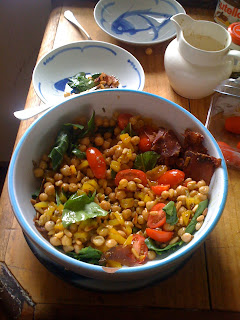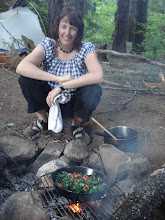I only just discovered this on Crikey from the 10th of December - it's Melbourne University's response to my resignation from University Council (and paywalled, so full text below) - my responses are in italics:
Melbourne University:
Christina Buckridge, Corporate Affairs Manager, University of Melbourne writes: Re. “Why I resigned from the University of Melbourne Council” (yesterday, item 15) & “Leaked email: Teach for free? Melbourne uni councillor calls it quits” (Tuesday item 14).It is regrettable that Tammi Jonas has decided to resign from the University Council where, as member elected by graduate students, she could have raised concerns and had them thoroughly and sympathetically considered.
How disingenuous to suggest that the Melbourne Graduate Student Association (GSA, formerly UMPA) had not been lobbying on the issue of exploitation of casual labour for YEARS - well before my time as President and certainly during. You can read blog entries from that period here. And as an elected member of Council I had repeatedly raised these issues, as I did on just about every university committee before that. The response usually takes one of two forms: a) we don't know what you're talking about - our policies don't allow such things or b) tutoring is all part of training, so of course it's not going to be that well paid. See the uni's response below for proof.
Ms Jonas is wrong in claiming that the Arts Faculty made a ‘strategic decision’ to stop paying postgraduates.
Have a look at this blog entry on what was going on in Arts in 2008. To my knowledge, it wasn't official 'policy' to stop paying, but subject coordinators were told not to offer any paid positions guest lecturing, and passed it on to their postgrads, who expressed the quandary it put them in.
Dean of Arts Professor Mark Considine says it has never been suggested that graduate students should give lectures or tutorials for free. While Schools within the Faculty experiencing straitened circumstances might have cut back on the number of guest lectures, it is not the Faculty’s policy to ask people to give tutorials/lectures without payment. Postgraduate students are an important — and paid — part of the Faculty’s tutorial program which rolls on as usual.
Again, the company line simply doesn't match the reality. See my earlier blog post with stories from real postgrads, some of whom had been asked and were giving guest lectures for free. Is the University suggesting these people are LYING?
Of course, some guest lecturers — retired honorary staff, for instance - may elect to present a lecture pro bono.
The email inviting Ms Jonas to take part in the Melbourne School of Graduate Research (MSGR) 2010 programs should not have been sent; no other postgraduate students have been invited by MSGR to teach into 2010 MSGR programs without payment. MSGR does not condone requiring postgraduate students to work without payment. However, some staff, and very rarely postgraduate students, may volunteer to take part in MSGR student enhancement programs but that is their decision alone — there is no compulsion.
My word. Compulsion is interesting, don't you think? Of course nobody is strong-armed into working for free, but they're not employed if they don't work for too little, or in some cases, don't agree/offer to guest lecture for free. And for those who believe that tutoring is important to developing their career as an academic, surely such exploitative practices amount to compulsion.
The University’s position is that if people are in employment, they are required to be paid in line with University policy.
Can somebody PLEASE pass that information on to the lecturers who are simply grateful when someone will teach for free since they will otherwise need to fund them out of their already limited grant money (if they even have any)?
Current rates for casual tutors at Melbourne are $104.84 ($125.37 with a PhD) an hour for the initial tutorial and $69.90 ($83.57 with a PhD) for repeat tutorials. These are standard for the industry and comparable to other countries. The hourly rate is way above average wages.
NB: $104.84 is for three hours work, not one - preparation, contemporaneous marking, student consultation & delivery. That is, it's the same as the pay for marking at $34.94/hour, and some tutors are not paid for marking. Here's the text from the University's Personnel and Procedures Manual:
'Tutorial' means any education delivery described as a tutorial in a course or unit outline, or in an official timetable issued by the University. A casual staff member required to deliver or present a tutorial (or equivalent delivery through other than face to face teaching mode) of a specified duration and relatedly provide directly associated non contact duties in the nature of preparation, reasonably contemporaneous marking and student consultation...
However it is important to note that postgraduate study is usually a full-time occupation and tutoring should not be used as a prime source of income.
And yet if you're fortunate enough to have a scholarship, you'll be living below the poverty line, and if not, you'll certainly need to work, preferably in your field... a conundrum? I have heard sympathetic senior academics make the argument to pay tutors better to management: "We don't want them to have to work in petrol stations, do we?"
In recent negotiations towards a new enterprise agreement, the University has agreed to increase the casual loading, ensure that all casual marking is paid at a separate marking rate (currently $34.94 per hour) and that casual academics have access to University facilities over semester breaks. The University is committed to improving conditions for casual staff during this round of bargaining.
This is good news, of course, though insufficient. What about paying casual academics when they continue to respond to students out of semester? Or attend student academic misconduct hearings? Or respond to online forums on the uni's Learning Management System? Or attend meetings?
Also where there is evidence that a casual staff member, or any staff member for that matter, is not being paid in accordance with University policy or that there is a mismatch of expectations about the work they are required to do, the University acts to correct it.
It seems to me that the only action the University usually takes is to quickly deny there was ever a problem. If you believe their official responses, whether at Council, on committees, or in the media, academics (both casual and permanent) are just prone to whinging and are seriously misguided about the 'reality of the situation'. How patronising, insulting and wrong. Until they stop denying there is a problem, what hope is there that conditions will improve? Analogies with national denialists abound here.

 tarter. It gained a bit of that beery smell, but was a bit of a lump – not that exciting, though I was, in fact, still excited. After three days, I added starter to a new dough, let it rise, punched it down and formed loaves, let it rise, and baked some beautiful looking but rather boring tasting bread. It was still better than supermarket bread, but let down by poor-quality flour from the local country Woolies and poor process, it was ye olde white bread incarnate. But then we came home...
tarter. It gained a bit of that beery smell, but was a bit of a lump – not that exciting, though I was, in fact, still excited. After three days, I added starter to a new dough, let it rise, punched it down and formed loaves, let it rise, and baked some beautiful looking but rather boring tasting bread. It was still better than supermarket bread, but let down by poor-quality flour from the local country Woolies and poor process, it was ye olde white bread incarnate. But then we came home...

















